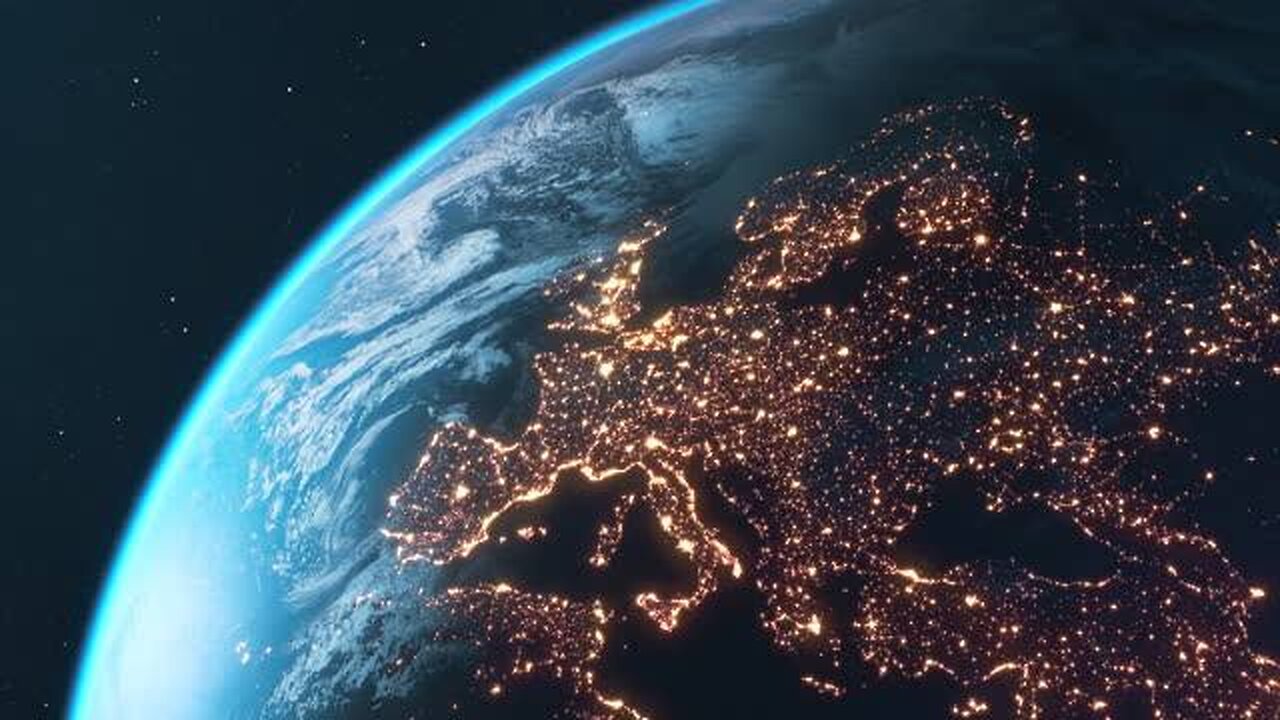Premium Only Content

Journey Through Space: NASA's Breathtaking Ultra High-Definition Earth Views
Experience the awe-inspiring beauty of our planet like never before with NASA's breathtaking ultra high-definition space footage. Immerse yourself in the mesmerizing vistas of Earth from the vantage point of the cosmos. Prepare to be captivated by the astonishing landscapes, vivid colors, and stunning details that only space can reveal. Witness the delicate dance of clouds, oceans, and continents in exquisite clarity. Join us for a journey beyond imagination as we present the 'Prepare to be Awed!' video. Discover the extraordinary sights that astronauts behold, and let wonder fill your senses. Explore the boundless beauty of our home planet from a perspective that truly defies description.
Earth, despite its name, stands out as the solitary planet within our solar system to possess vast oceans. It holds the distinction of being the fifth-largest planet, while also serving as the exclusive abode of life forms.
Encompassing 70% of Earth's surface, the planet's seas and oceans teem with an abundance of life. These aquatic realms, with an average depth of 4 km, account for a staggering 97% of the water on our planet. Moreover, they boast remarkable geological features, with the Mid-Oceanic Ridge-a sprawling mountain range-hidden beneath their depths. Stretching a staggering 65,000 km across the Arctic and Atlantic, this underwater marvel dwarfs the Andes, Rocky Mountains, and Himalayas combined.
A collaborative study conducted by the Universities of Münster, Cambridge, and Zurich Technique unveiled that Earth's age ranges between 4,400 million and 4,510 million years. Throughout its existence, the planet has witnessed five mass extinctions, the first occurring 440 million years ago and the most recent transpiring 65 million years ago.
Michael Rampino, an esteemed Earth science expert from New York University, asserts that it takes approximately 30 million years for the Solar System to traverse the plane of the Milky Way. This phenomenon potentially destabilizes the orbits of comets, propelling them towards our planet.
Additionally, Rampino proposes an intriguing yet underexplored possibility: the influence of dark matter.
A solitary planet harboring 8.7 million species. The ecosystems upon which human survival hinges consist of roughly 8.7 million plant and animal species. A comprehensive study conducted by the University of Hawaii in 2011, widely considered the most accurate to date, substantiates this claim. Astonishingly, we have only identified 1.3 million of these species. Regrettably, the Living Planet report by WWF issues a sobering warning, revealing that since the 1970s,the global vertebrate population has dwindled by 60% due to factors such as global warming, ecosystem destruction, and the biodiversity crisis driven by human activities. It falls upon us to nurture, safeguard, and perhaps even unearth all the diverse life forms that transform our planet into an abundant source of existence.
#NASAViews #SpaceSpectacle #EarthInHD #CosmicVistas #StunningSpaceScenes #AweInspiringEarth #NASAHDVideo #GalacticWonders #SpaceMarvels #BreathtakingPlanet #HeavenlyPerspective #CosmicSplendor #SpaceBeauty #CelestialWonders #OutofThisWorldViews #AstoundingEarthScapes #CosmicCinematics #IncredibleSpaceFootage #AstronomicalAwe #SpectacularCosmos #SpaceExploration #MesmerizingPlanetEarth #GalacticGaze #UniverseUnveiled #NASA #SpaceExploration #SpaceMission #Astronomy #MarsRover #SpaceTech #RocketLaunch #ISS #HubbleTelescope #SpaceScience #Astrophysics #Spacewalk #Satellite #SpaceNews #Galaxy #BlackHole #SpaceProbe #OrionNebula #SpaceShuttle #Cosmos
-
 2:17:08
2:17:08
FreshandFit
5 hours ago10 Top Red Pills About American Women
29.3K14 -
 LIVE
LIVE
Badlands Media
10 hours agoDevolution Power Hour Ep. 383
7,625 watching -
 3:17:28
3:17:28
TimcastIRL
4 hours agoTrans Shooter Targets Catholic Kids In Mass Shooting, Leftists Reject Prayers | Timcast IRL
196K49 -
 1:31:29
1:31:29
Brandon Gentile
1 day ago25 Year Wall Street INSIDER: $1M Bitcoin Soon Is Just The START
3.08K -
 LIVE
LIVE
SpartakusLIVE
6 hours ago#1 Birthday Boy Celebrates with MASSIVE and HUGE 4.8-Hour Stream
311 watching -
 55:54
55:54
Man in America
7 hours agoFrom Oil Barons to Pill Pushers: The Rockefeller War on Health w/ Jeff Adam
20.1K3 -
 3:02:18
3:02:18
Barry Cunningham
5 hours agoBREAKING NEWS: PRESIDENT TRUMP THIS INSANITY MUST END NOW!
71.7K137 -
 LIVE
LIVE
StevieTLIVE
4 hours agoWednesday Warzone Solo HYPE #1 Mullet on Rumble
234 watching -
 5:58
5:58
Mrgunsngear
5 hours ago $0.82 earnedBreaking: The New Republican Party Chairman Is Anti 2nd Amendment
13.8K7 -
 2:28:35
2:28:35
Geeks + Gamers
4 hours agoGeeks+Gamers Play- MARIO KART WORLD
18.6K